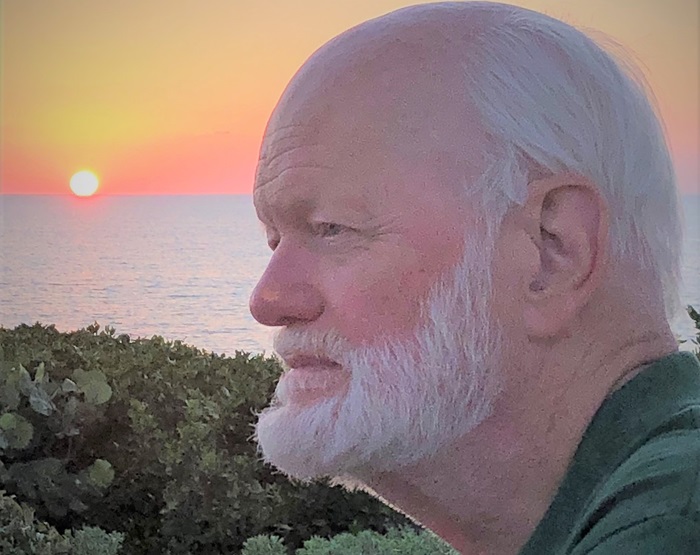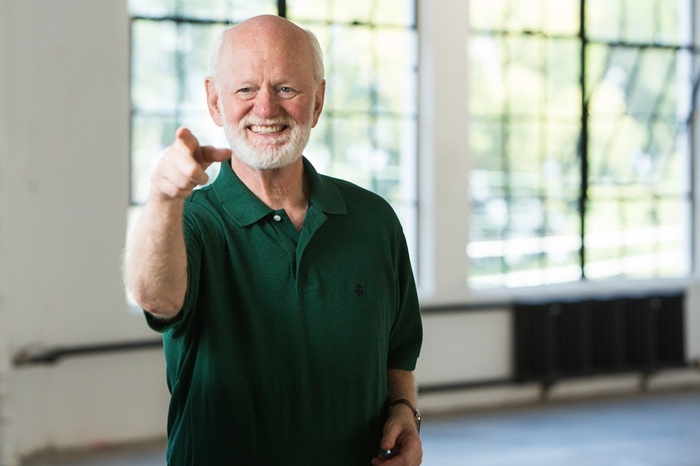Authenticity Rules: Business Leaders’ Tips on How to Be Real – and Why
By Chris Benguhe, RaeAnne Marsh and Elaine Pofeldt | February 6, 2025 11:15 am
Despite plenty of phony marketing and branding, or maybe because of it, companies that honestly connect will win big!

“To grow personally and prosper here at our company, you must be trustworthy — to yourself, your family, the company and our customers and suppliers.” — Dave Alexander (istockphoto: Svetlozar Hristov)
A little over a year ago, we launched the Dave Alexander Center for Social Capital by featuring the all-important principle of authenticity and a collection of CEOs we honored for exemplifying that seminal quality of people-centric business policies. Unbeknown to us at the time, Webster’s dictionary would choose it as its word of the year!
We made it one of our ten core principles and decided to kick off our features this year with the same principle and a dozen CEOs we honor for their embodiment of it, first of all because it’s still just as crucial to any success in business — or in life, for that matter — at least if you believe in Social Capital principles.
But secondly, as we also noted last year, the principle is particularly important at this time in history because we are in an age when misrepresentation, fraudulent emulation and just bad copies of a whole lot of things have become commonplace. And we do not mean merely the old-style cons who fleece you in back-alley deals or phone scams and internet trolling. We are talking about widespread misappropriation of noble ideas, age-old platforms resuscitated and copied badly for the sake of manipulating us, and leaders who pretend to care about us when what they really care about is the profits and power they gain from us.
You do not have to look far to find examples of great movies and classic songs badly remade for profit, or socio-cultural movements pretending to be like those of the past originally inspired by the fight for truth and justice but whose modern versions are aimed only at creating dissension and conflict for personal gain and power.
But lest we digress, this article is about business leaders, and, unfortunately, there are more than a few examples these days of those using pat lines and PR campaigns that make them sound great on paper, all the while mistreating the people who make them successful. They are giving business a bad name while hurting people, our society and our world with their insincere profiteering.
However, that is not what Social Capital leaders are all about at all. They are about the classic, timeless value of respecting people and doing so in open, honest and forthright ways. They do not pretend to be the flavor of the month, even if it means maybe losing some business or press in the short run. Because they know in the long run it will mean more to be true and authentically committed to what they value most: people and how to serve them through their business.
Most importantly, they are doing things that way because it is who they authentically are. The social capital leaders we have picked do things this way because they truly believe people are the whole point of profits, and they run their companies to serve people, not the other way around. And it works!
Essentially, every one of the leaders we have honored and will honor as we grow and evolve our Center could be honored for this, so this month’s list of honorees is not meant in any way to exclude the rest.
But we are highlighting these leaders because they had something very distinct to say, and do, to showcase that power and commitment to authenticity — from which others may learn.
They are leading the way to showcase how real work, real values and real concern for others out-performs virtue signaling when it comes to improving the lives of their customers, their employees and those in the communities they serve.
So here for you are this month’s honorees sharing, in their own words, what they believe authenticity is all about. And we hope it helps you to practice authenticity in your own business.
Because we believe the real bottom line is people.
Don Larson, Founder & CEO of Sunshine Nut Company
Authenticity is the foundation of every meaningful interaction. In my years as an executive in the U.S., I found that success wasn’t just about strategy or resources — it was about being truthful, direct and treating people with the respect they deserve. That didn’t change depending on someone’s status or position; respect is not conditional. Over the past 13 years working in remote villages in Mozambique, I’ve seen the same truth play out. No matter where people live or how much they have, they want to be treated with dignity, honesty and fairness. Authenticity isn’t just about words — it’s about showing up with genuine intent and consistency in how we engage with others.
In our work, we connect with village leaders to build partnerships for community cashew farms and local processing factories. My approach remains unchanged, whether speaking to someone with almost nothing to their name or someone with access to the best the world has to offer. People respond to authenticity. When you engage them as equals, their entire demeanor shifts — barriers dissolve and real collaboration begins. One of the biggest mistakes we make in helping others is assuming they need only material aid. What they need just as much — if not more — is the belief that they can create a better future. Authenticity is about more than just honesty; it’s about empowering people with the mindset that they are capable and worthy.
At its core, authenticity means treating everyone the same — with decency, honesty, dignity and respect — no matter where they stand in life. When we lead with authenticity, we don’t just change circumstances. We change people.

“When we lead with authenticity, we don’t just change circumstances. We change people.” — Don Larson (istockphoto: Marinela Malcheva)
Jonathan Keyser, Founding Member & Managing Partner of Keyser
Over the past few years, economists have assured the public that we’re not in a recession and that “the economy is doing better than ever!” Yet, the average American family has faced record-breaking inflation and rising grocery bills. It’s no surprise, then, that Americans are starving for authenticity. In 2025, companies are prioritizing transparency and trust to win back a disheartened audience.
The commercial real estate industry reflects this broader disconnect. Vacancy rates are high, yet rental rates remain at their peak — a misalignment that leaves business leaders questioning why the market is behaving out of step with economic logic and past trends.
This distrust is only amplified when brokers, eager to close deals, prioritize transactions over true advocacy. Many business leaders unknowingly engage brokers who represent both landlords and tenants — a fundamental conflict of interest. In these cases, the broker’s fiduciary duty lies with the landlord, often leaving tenants at a disadvantage. Business leaders are frequently dissuaded from negotiating aggressively and may accept suboptimal terms simply because they’re told, “That’s just how the market is.”
At Keyser, we’re addressing this head-on. In 2025, our focus on authenticity means taking action. We’re offering a free lease review — with no cost and no risk — to demonstrate the value of a true, tenant-only advocate. Our only goal is to showcase our expertise, earn your trust through transparency, and continue disrupting the commercial real estate industry by exposing the dangers of conflicted representation.
Donald Thomson, Founder & Chairman of CRDC Global
Social capital practitioners predict a systemic change that creates a mass movement to foster people-centric business will happen. To achieve that, an unwavering belief in the authenticity and purpose of the leadership tasked with this challenge, combined with measurable results, will be at the cornerstone of its inception and sustainability. At CRDC, The Center for Regenerative Design and Collaboration, we believe such a movement is possible and is already actively incubating worldwide.
CRDC’s contribution to this growing movement is our zero-waste approach, which we call REAP. This important acronym complements our value proposition of Recover – Enrich – Appreciate – Prosper by serving as a memorable and actionable framework that encapsulates the essence of business concepts for good. Here’s how each element of REAP interrelates:
R — Recover: The first step in the process emphasizes the importance of recovering what is lost, broken or undervalued. This aligns with taking something that may seem unusable or diminished and restoring it to a state of usefulness and quality.
E — Enrich: Enrichment involves adding value and purpose to what has been recovered. This can mean enhancing the quality of an object, an environment or a community impact. It encourages individuals and organizations to invest in improvement and sustainability.
A — Appreciate: Appreciation involves recognizing, enhancing and valuing the assets and created resources and the communities they build. This appreciation fosters gratitude and mindfulness, encouraging a positive connection with what was recovered while celebrating growth and change.
P — Prosper: Prosperity refers to the positive outcomes that arise from the previous steps. By recovering and enriching resources and appreciating their value, economies, society and the environment can thrive and achieve sustainable success.
Today, CRDC teaches tens of thousands of children worldwide the regenerative qualities inherent to REAP. The company also practices REAP as its guiding business principle in the global waste management and construction sector. This would not be achievable without believing in and demonstrating the authenticity of our purpose.
Dave Alexander, Founder & Managing Member of Caljet of America
Authenticity!
This word is defined by me using the twelve words of the Scout Law: Trustworthy, Loyal, Helpful, Friendly, Courteous, Kind, Obedient, Cheerful, Thrifty, Brave, Clean and Reverent.
My father was a Scout and led me in these principles by example. When I became a Scout, I accepted the Scout Law, and it drove me to become an Eagle Scout.
I would now add the word “communication” to the Law, to help teach the Law to others and make the world a better place. If you are authentic, people you interact with will know who you are, and all in your circle of acquaintances will have a better life!!!
A typical talk that I give to a new employee is: “To grow personally and prosper here at our company, you must be trustworthy — to yourself, your family, the company and our customers and suppliers.”

“Authenticity isn’t a slogan; it’s the sum of decisions that reflect purpose over convenience.” — Michael Brady (Image: Pixabay/geralt)
Michael Brady, Founder of Organic Food Incubator and Operating Partner at Southeast Acquisition Capital
Authenticity isn’t a policy you draft; it’s the architecture of a business, built layer by layer through decisions, actions and culture. While new initiatives can signal intent, authenticity gains its strength from consistency over time — from the daily behaviors that become the heartbeat of an organization.
Consider companies like Ben & Jerry’s and Patagonia. They’re not lauded because of a single bold move but because their commitments have been unwavering, embedded in their operations and values for decades. Their authenticity isn’t a marketing strategy; it’s who they are. That’s why it’s challenging to name many others in their league — genuine authenticity is rare because it demands courage, not just compliance.
However, 2024 offered a surprising contender: [global investment firm] KKR. In May, KKR expanded its employee ownership strategy globally, signaling a profound shift in how private equity can operate. This wasn’t a trend-chasing move. KKR had been laying the groundwork since 2011, implementing broad-based employee ownership in more than 30 companies. Its approach recognizes that employee ownership, like authenticity, isn’t just good ethics — it’s a force multiplier. It creates trust, fosters loyalty, and aligns business objectives with societal value.
Leaders like Ben Cohen, Jerry Greenfield, Yvon Chouinard and now Pete Stavros of KKR, embody this ethos. They faced skepticism, even resistance, because challenging entrenched systems always does. Stavros’ work in redefining private equity through employee ownership disrupts a model often criticized for prioritizing short-term gains over lasting impact.
At Southeast Acquisition Capital, as we build our portfolio of employee-owned businesses, we draw inspiration from these leaders. Authenticity isn’t a slogan; it’s the sum of decisions that reflect purpose over convenience. It manifests in how companies treat their employees, engage with customers and contribute to communities. When authenticity is woven into a business’s fabric, it generates more than profit — it cultivates resilience, trust and a legacy that endures beyond quarterly reports.
Amy Lemire, CSP, DTM; President & CEO at AIM Training and Consulting, Inc.
In today’s world, it’s clear that authenticity has become more than just a buzzword; it’s a key for sustainable leadership and meaningful business relationships. Over the past year, we’ve seen a profound shift where companies, leaders and customers appreciate the importance of being genuine and transparent in their interactions.
For me, authenticity is about embracing vulnerability and transparency, which doesn’t mean focusing on being perfect, but rather being real, open and present. It’s about being willing to share my experiences, successes and the lessons learned from navigating the peaks and valleys along my journey. This aligns closely with my belief that excellence is a journey, not a destination.
In our organization, we’ve translated this focus on authenticity into tangible actions and culture. We have created an environment that encourages open dialogue, where team members are free to share their perspectives and ideas without fear of retribution. We believe in the importance of a safe place for conversations as a way for personal and professional growth and support. This openness not only builds trust but also paves the way for innovation and growth for the clients, businesses and communities we serve.
Also, I have prioritized leading by example, showing that it’s okay to make mistakes and learn from them. By sharing my own stories of challenge and perseverance, I aim to inspire and uplift others, encouraging them to be the best version of themselves.
Ultimately, authenticity in leadership is about serving others, helping them discover their truth and empowering them to own their stories. It is a commitment to honesty and respect, creating a culture where everyone feels valued and inspired. As we move forward into a new year, I am excited to continue cultivating authenticity as a core value, not just as a leader, but within our entire community.

“By sharing my own stories of challenge and perseverance, I aim to inspire and uplift others, encouraging them to be the best version of themselves.” — Amy Lemire (Image: Pixabay/geralt)
Mark Emery, Co-Founder & CEO of Juvo Jobs
Authenticity is a fundamental expectation from employees and customers, yet hiring processes have become overly transactional. Job seekers have been reduced to résumés and employers often hide behind generic job descriptions. In any industry, similar approaches diminish the human connection that’s critical for meaningful employment relationships.
At our company, Juvo Jobs, we understand that true connections happen when we move past hiring limitations. For example, introducing more personal, human elements into the hiring process — whether through video or candid conversations — can create opportunities for people to showcase who they are beyond their credentials. Authenticity isn’t just about who you hire; it’s about how you hire, which is why we challenge companies to lead with honesty in their hiring practices by being open about expectations and pay on our network.
In 2025, businesses that prioritize authenticity will build stronger, more connected teams.
Verne Harnish, Owner & CEO of Scaling Up
“Peace and Love” — that’s our new P&L at our executive education firm Scaling Up. It started with me, the CEO, doing “the work” last year with a hypnotherapist and undergoing a hero’s journey with the Beckley Foundation.
To be authentic around the “old” me was part of the problem at my firms. Now that I’m continuing to heal, this new “P&L” approach is paying dividends since the team can see that I’m modelling the way.
From how we respond to customers to the way we deliver our services, everything is now aligning around a way that is better — and is authentic because I changed to match.
Brent Ridge and Josh Kilmer-Purcell, Co-Founders of Beekman1802 and Coauthors of G.O.A.T. Wisdom: How to Build a Truly Great Business–From the Founders of Beekman 1802
Beekman 1802 is a skin health company that started with a single act of kindness — one neighbor helping another — and we grew the company one neighbor at a time.
Authenticity and community have always been central to our success, but as social media became the most prominent communication, especially with younger consumers, we knew that we had an obligation to select people who inherently have the DNA of the brand and can speak authentically in their own voice. Using research from Kindness.org and Oxford University, each of our social media influencers (now in the thousands), is asked to take a questionnaire that assesses their individual “Kindness Quotient,” and our team scans how each of them responds and interacts with their own community in the comments section of their feeds. This ensures each person with whom we work uses their platform to put more kindness out into the world.
Brandon West, Founder & Chief Purpose Officer at PHOS Creative
The need for authenticity in leadership has never been greater. We live in the age of distrust, where people don’t begin from a place of trust but from skepticism and question marks. Authenticity and transparency aren’t just about corporate finances, organizational decision making or strategic planning. They are also deeply personal.
I’ll never forget a conversation with a team member and her reaction when I shared that some of our current struggles in business were just as challenging for me as they were for her. She responded, “Oh, I had no idea … That might be good for the team to hear. All they get from you is excitement and hope for the future.”
The truth is, I want to be a leader who dreams for a bigger, brighter future, but I also want to be relatable and connected with my people. Genuine connection requires trust, and trust is earned through the consistent practice of authenticity.

“When leaders demonstrate genuine care for their mission and team, it creates a workplace culture grounded in trust and mutual respect.” — Susanne Evens. (istockphoto/AndreyPopov)
Susanne Evens, Founder & CEO of AAA Translation
Authenticity is a cornerstone of successful businesses because it builds trust and fosters meaningful connections with customers. In a marketplace crowded with competitors, consumers gravitate toward brands that feel genuine and transparent. When a business communicates honestly about its values, practices and intentions, it establishes credibility, which is essential for cultivating long-term customer loyalty. Authenticity also enables businesses to stand out by highlighting their unique identity, creating an emotional connection that goes beyond transactional relationships. Customers appreciate brands that are consistent and true to their promises, which leads to stronger brand loyalty and positive word-of-mouth recommendations.
Moreover, authenticity inspires and motivates employees, which translates into better performance and customer experiences. When leaders demonstrate genuine care for their mission and team, it creates a workplace culture grounded in trust and mutual respect.




